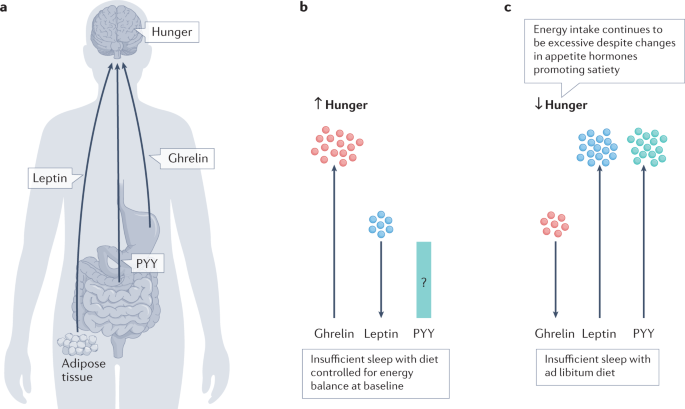
In the hustle and bustle of modern life, sleep is often overlooked in favour of endless to-do lists and constant connectivity. However, a powerful force influencing hunger and energy, two of our most basic needs lies beneath the surface of those restless nights. Consider your body to be like a well-tuned orchestra, with sleep acting as the conductor to ensure that all instruments are playing in sync. When you don’t get enough sleep, the delicate balance between appetite and vitality gets thrown off, which results in cravings that make it hard to eat right and energy slumps that make your day miserable. Let’s examine how sleep affects hunger and energy. Getting enough sleep is just as important as regaining control over your performance, emotions, and well-being as a whole. Let’s examine this fascinating relationship and discover why getting those Zzzzs might have the biggest effect on your physical and emotional health.
Contents
What Happens to Your Hunger When You Don’t Get Enough Sleep?
Lack of sleep disrupts the delicate balance of hormones that regulate hunger, which leads to increased appetite and cravings. More specifically, sleep deprivation causes: Ghrelin, the hormone that tells your brain when you’re hungry, is elevated. Lack of sleep raises ghrelin levels, which causes you to feel more hungry than usual.
Decreased Leptin Levels: Leptin is the hormone that indicates fullness. Leptin levels drop when people don’t get enough sleep, which makes them feel fuller.
High-calorie food cravings: People who don’t get enough sleep are more likely to overeat because they crave foods that are high in fat, sugar, and carbohydrates.
This chemical imbalance explains why people who sleep less tend to eat more and ultimately gain weight.
How does sleep affect how much energy you have during the day? The body naturally uses sleep to repair damaged tissue and gain energy. Getting enough sleep allows your body to efficiently replenish its energy reserves, keeping you alert and energized.
Conversely, insufficient sleep results in:
Reduced Glucose Metabolism: Insufficient sleep impairs the body’s capacity to properly digest glucose, the primary energy source, which leads to fatigue.
Decreased Physical Performance: Sleep deprivation affects strength, coordination, and endurance.
Reduced Cognitive Function: Lack of sleep causes mental exhaustion by affecting memory, concentration, and judgment.
Getting enough quality sleep is essential for mental and physical health.
Why Does Sleep Deprivation Make You Crave Unhealthy Foods?
The reward regions of the brain, particularly those associated with food drive, are impacted by sleep deprivation. When you don’t get enough sleep: Increased Activation of the Reward Centre: The increased response of the brain to foods high in calories makes junk food more appealing. A decreased level of activity in the prefrontal cortex, which is responsible for regulating impulses, is the root cause of poor eating habits. Cortisol levels rise when people don’t get enough sleep, which can make them want comfort foods and eat more. This combination can lead to a vicious cycle of bad eating habits, which could be bad for your health. Can getting more sleep help reduce hunger and increase energy? Naturally! Prioritizing good sleep hygiene improves energy metabolism and restores hormone balance.
Better sleep has the positive effects listed below:
Normalized Leptin and Ghrelin Levels: Sleep helps regulate hunger and fullness cues.
Reduced Cravings: When hormones are in balance, junk food is less necessary.
Enhanced Energy Production: Stamina is boosted by improved glucose metabolism and muscle repair.
Better mood and ability to think clearly: Getting enough restful sleep improves mental clarity and emotional stability. Little things like setting a relaxing bedtime routine, limiting screen time before bed, and maintaining a regular sleep schedule can make a big difference.



